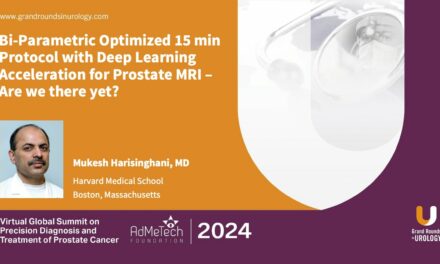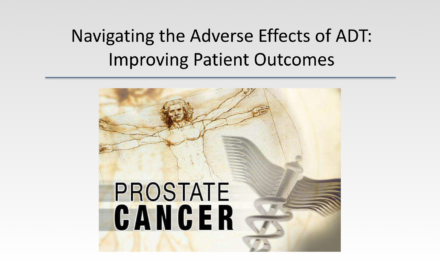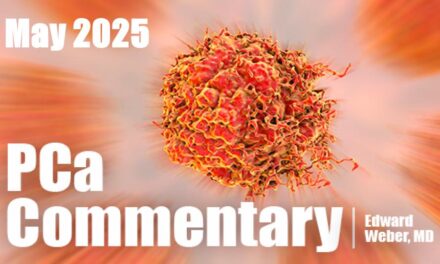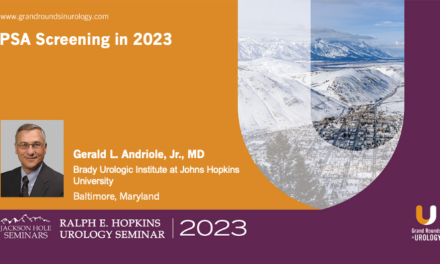Arvin K. George, MD, presented “Optimizing Biopsy Approach Before Precision Prostatectomy” during the 26th Annual Southwest Prostate Cancer Symposium conference on April 13, 2023, in Scottsdale, Arizona.
How to cite: George, Arvin K. “Optimizing Biopsy Approach Before Precision Prostatectomy.” April 13, 2023. Accessed Jan 2026. https://grandroundsinurology.com/optimizing-biopsy-approach-before-precision-prostatectomy/
Optimizing Biopsy Approach Before Precision Prostatectomy – Summary#
Arvin K. George, MD, reviews the strengths and limitations of prostate magnetic resonance imaging (MRI), identifies strategies to optimize the detection of clinically significant prostate cancer, and reviews outcomes of precision prostatectomy. Dr. George begins by addressing the weak predictive value of multiparametric MRI (mpMRI,) calling it imperfect. However, data from the PROMIS study supports mpMRI over transrectal ultrasound (TRUS.)
Dr. George cites data on MRI-targeted, systematic, and combined biopsy for prostate cancer diagnosis, and defines precision prostatectomy as a subtotal prostatectomy that preserves tissue and nerves. Dr. George illustrates two scenarios to support the use of precision prostatectomy in conjunction with a 3D ultrasound to guide treatment—one for biopsy-naive patients and the other for patients with prior biopsy. He then shares data on precision prostatectomy outcomes, in which all patients maintained social continence and 85% of patients maintained potency after one year.
In regards to remission rates, only 6.6% of post-mpMRI biopsy patients presented with clinically significant prostate cancer at 36 months, with over 90% of patients requiring no secondary treatment. Dr. George reiterates that mpMRI is not perfect, but its preservative effects on patients makes it worth further exploration.
About the 26th Annual Southwest Prostate Cancer Symposium:
This conference educated attendees about advances in the management of localized and advanced prostate cancer, with a focus on imaging, technology, and training in the related devices. It included a scientific session, as well as live demonstrations of surgical techniques. You can learn more about the conference here.
ABOUT THE AUTHOR
Arvin K. George, MD, serves as director of prostate cancer programs and associate professor (PAR) of urology at Johns Hopkins School of Medicine in Baltimore, Maryland. He is a urologic surgeon who specializes in the diagnosis and management of genitourinary cancers. After obtaining his medical degree from the Royal College of Surgeons in Ireland, he completed his urology residency at the Smith Institute for Urology at the Hofstra North Shore-LIJ School of Medicine. He remained there to complete his endourology fellowship in New York, gaining additional subspecialty expertise in robotic, laparoscopic, and percutaneous surgery. Subsequently, he completed a urologic oncology fellowship at the National Cancer Institute of the National Institutes of Health. Dr. George’s research interests include minimally-invasive and image-guided treatments, functional prostate imaging, and focal therapy for prostate cancer. His research aims to identify appropriate use for imaging in diagnosis, risk stratification, and management of prostate cancer, including active surveillance and selection/treatment of patients with novel focal therapy modalities.





